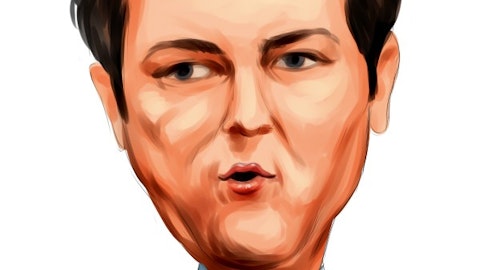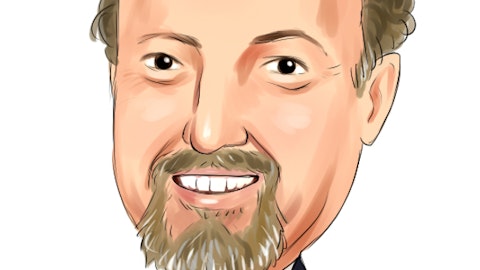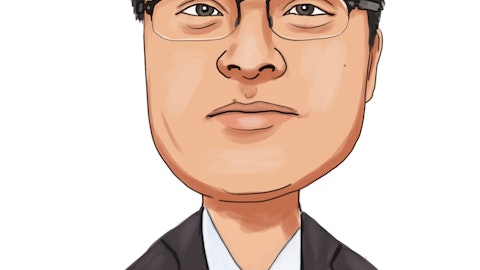Anthony Guzzi: All of the above. It’s a revenue opportunity in a sense of it allows us to capture more of the job in some cases and even sell some modules to people where we’re not actually doing all the installation on a job. It’s a margin opportunity since we make less mistakes and we have better yield. And we get more productivity out of the people and it allows us to mix the labor a little differently on the job. And how far can we take it? I mean obviously, we’re investing in the resource and to take it in a different direction. But it’s a careful match between what’s the BIM requirements. But then you also have to think about what your prefab plan is and then what your prefab infrastructure is and how much you’re going to invest in that prefab infrastructure because you don’t want to be too far ahead of what the need is, right?
That’s fixed costs. And one thing we’ve learned is being good specialty contractors, you don’t build a huge fixed cost base ever unless you know where it’s going to support you over the next 2 or 3 years. It’s why we don’t own thousands of scissors lift, right? We’re more than happy to be a great customer of rental companies like United Rentals.
Adam Thalhimer: Okay. And then can you talk a little bit about your industrial group and if that could broaden out over time? Like I know you guys have been really focused on downstream energy for a long time, but is there anything that would prevent you from working on like a hydrogen hub or some of this other stuff?
Anthony Guzzi: There’s nothing at all that would prevent us. And we’re not like wedded to anything. What we have is we’ve got great relationships with customers, and we can service their most advanced things. Pipe is pipe. We can do biofuels, we can do carbon capture. We can do — one of the things we’re most excited about is what can our Electrical group do in the renewable energy space, especially around solar? We can do all that. Just so happens, we didn’t do as much of that as we wanted to last year because we can’t get product, not that we can’t get the product. Our ultimate end customer can’t get the product. We have great industrial pipe fitters in that group, foremen, superintendents. We have good mill rights, and we have terrific field an electrician, they can do just about any.
One of the things I learned, and this is interesting. I went out to a solar job that they were doing. And our customer was struggling a little bit. They brought us in. We hadn’t done — we really hadn’t done any one of these to scale up to that point. The ingenuity of the people that came out of the oil and gas business, they’re used to working in austere conditions. They’re used to working in demanding conditions. And they’re used to being very flexible in their means and method. The productivity they were able to gain on that job versus people that specialize in it was quite remarkable. These are some of the most intuitive problem solvers across any of our businesses. So when those opportunities present, we’ll be there. We’re working on the edges of that right now in the renewable fuels and biofuels area.
We certainly have the solar thing installation down on the electric side. Now it’s just getting the demand. But yes, we’re not wedded to any one thing. We’re going to go where the best margin opportunities are with that workforce.
Adam Thalhimer: Okay. That’s perfect. And then real quick, the whole Davis Bacon issue, does that give you an advantage or kind of a nonunion shop, just pay Davis Bacon?





